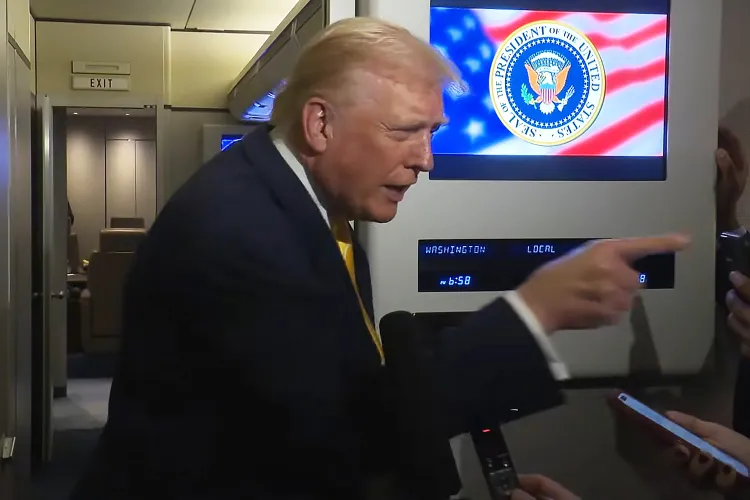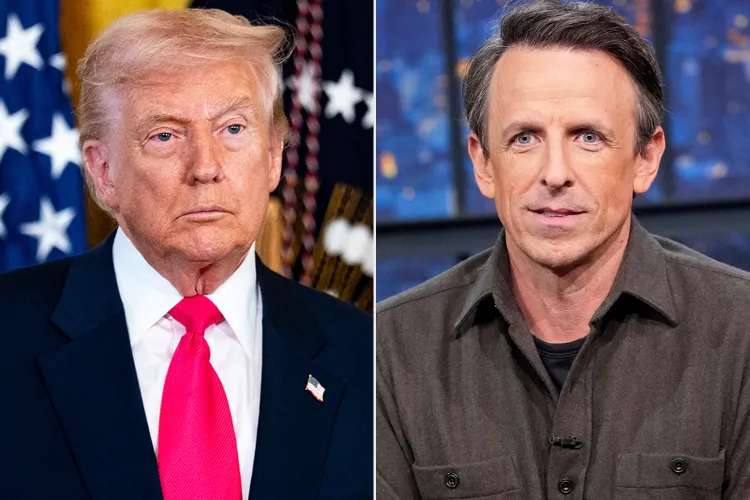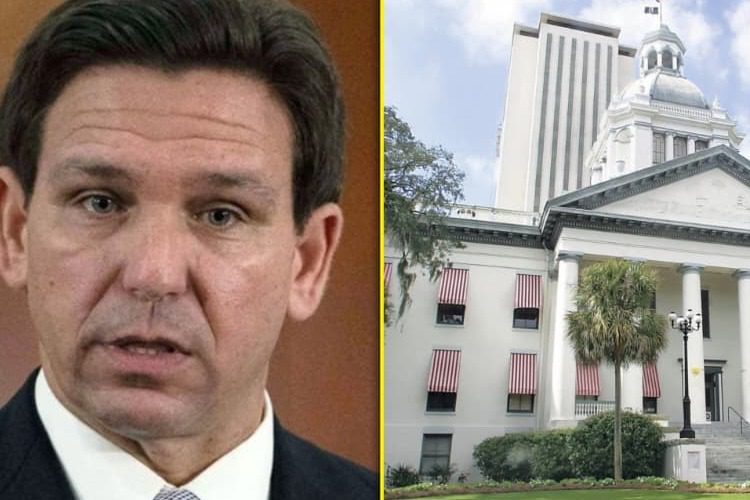A Reporter Asked Donald Trump About the Latest Epstein Files — and His Abrupt, Tense Reaction Sparked a Firestorm of Speculation
The exchange lasted only a few seconds, but it immediately ignited a wave of speculation, outrage, and curiosity across social media. Reporters aboard Air Force One on November 14 expected a routine mid-flight press availability with former President Donald Trump, but what they witnessed instead was another tense chapter in the long and complicated relationship between Trump and the White House press corps. When a journalist raised a question about recently unsealed documents related to Jeffrey Epstein’s past communications, Trump interrupted sharply, pointed toward the reporter, and, according to several journalists who were present, spoke over her before moving on to the next question. Within hours, the moment was clipped, captioned, and circulated online with claims that Trump used a disparaging remark — a quote that continues to circulate without video confirmation, leaving supporters and critics locked in disagreement over what was actually said.
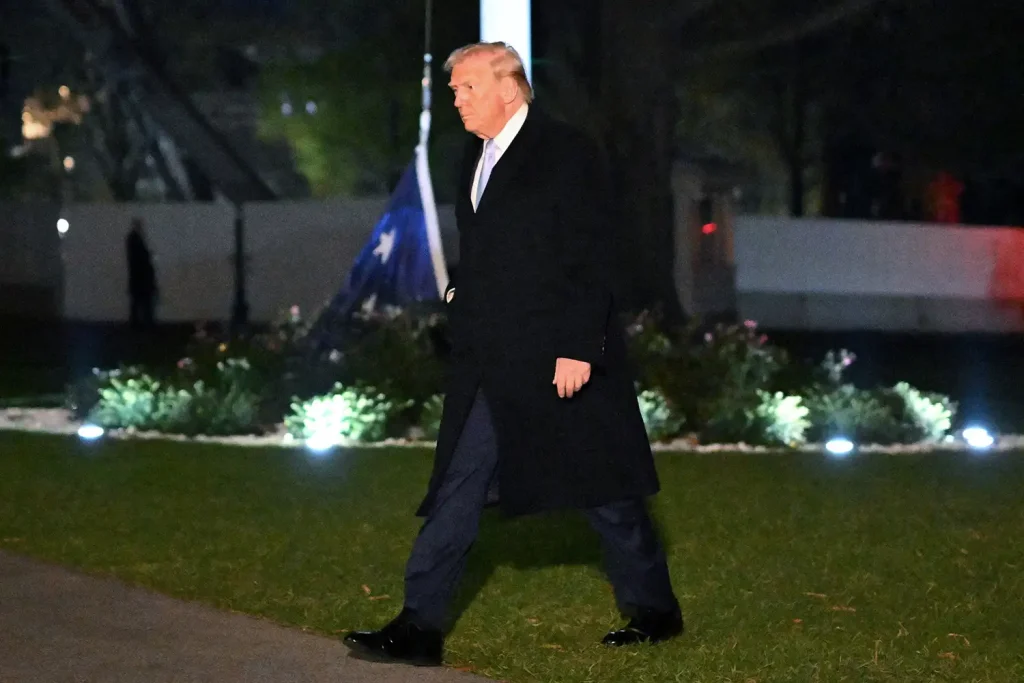
The confrontation happened as the plane was descending toward Washington, where Trump was scheduled to appear at a private evening fundraiser. Several reporters onboard have since confirmed that Epstein was mentioned directly in the question, specifically regarding three recently released emails that referenced Trump’s name. The documents, part of a much larger trove of material being slowly unsealed through court proceedings and public pressure, did not allege criminal behavior. They simply included his name, as they included the names of dozens of high-profile people across business, politics, and entertainment. For years, Trump has maintained a consistent position: he has said he met Epstein socially, was never involved with his crimes, and cut ties with him long before Epstein’s 2008 conviction. But the resurfacing of new court exhibits — even those lacking allegations — has brought renewed media attention, something the former president has shown increasing impatience toward.
Reporters present described the atmosphere as shifting the instant the Epstein topic was raised. Trump, who had been speaking in a measured tone only moments earlier about polls, campaign stops, and economic policy, stopped mid-sentence and turned toward the reporter. Several microphones picked up his voice rising sharply as he dismissed the question. What happened next depends on who is recounting it. Some journalists insist they heard him use a mocking phrase directed at her. Others say they only heard him say “Quiet. Quiet,” something he has said in past press confrontations. By the time the plane landed, internet commentary had overtaken the facts, creating a much wider storm than the brief moment arguably warranted.
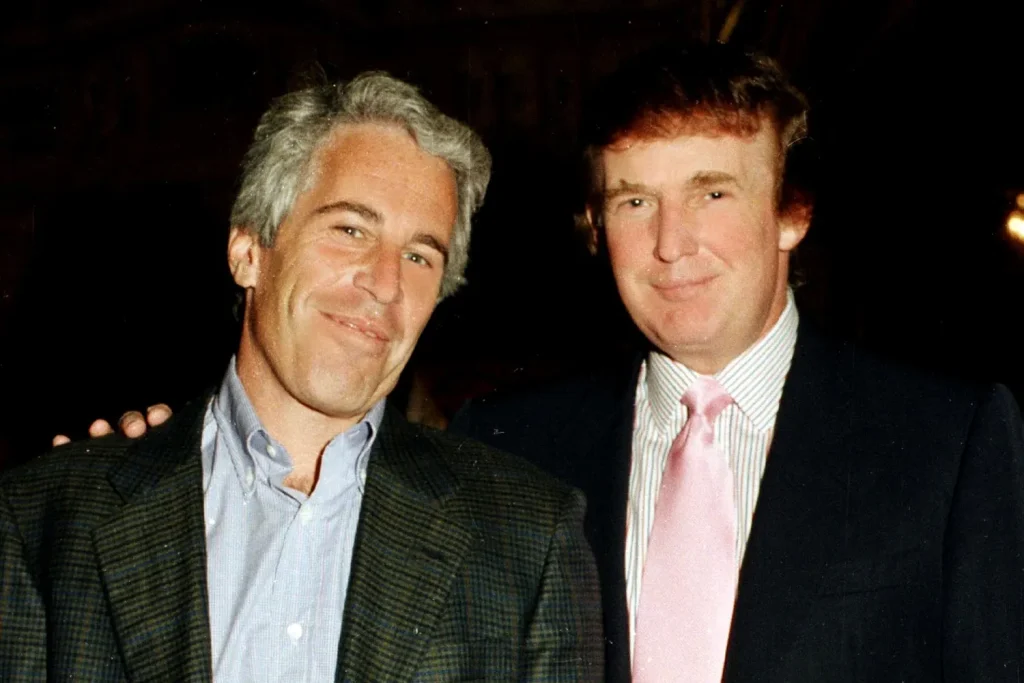
What remains unambiguous is that the question struck a nerve. Trump has long framed Epstein-related inquiries as politically motivated attempts to connect him to crimes he was never formally accused of. During his first campaign, he publicly stated he had banned Epstein from his Mar-a-Lago club after what he described as an incident involving inappropriate behavior. Legal filings from that case confirm Epstein was removed from the club, though they do not specify the reason. That detail is frequently cited by Trump’s supporters as proof he rejected Epstein socially, while critics point to old photographs showing them together as evidence of association. The truth — like much of Trump’s history with the media — exists somewhere between public perception, political weaponization, and incomplete documentation.
On social media, the alleged quote became the story rather than the documents themselves. Within hours, political commentators were treating it as fact, memes were circulating, and partisan influencers were framing the moment as either another example of Trump’s unfiltered candor or, depending on perspective, another instance of him belittling women who ask difficult questions. Lost beneath the noise was the actual substance of the reporter’s question: what did Trump make of the fact that his name appeared in newly unsealed communications linked to Epstein?
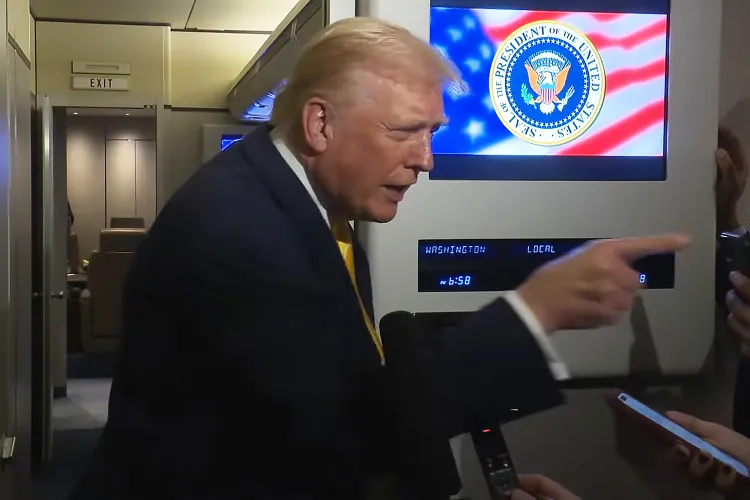
The truth is that the documents, released in batches through various legal motions, do not reveal anything new about Trump beyond what has already been reported. They do not contain accusations, testimony, or evidence tying him to Epstein’s crimes. They simply list him as someone Epstein contacted or referenced, something that also applies to Bill Gates, Bill Clinton, Mohammed bin Salman, Ehud Barak, Richard Branson, and countless others. Epstein operated in elite social and financial circles for decades, and his network included presidents, billionaires, academics, and royalty. The public fascination with those names is rooted less in evidence than in a haunting question: Who else knew what was happening?
Political analysts observing the fallout of the Air Force One exchange noted that Trump’s defensive posture, even if brief, speaks to a strategy his team has relied on for years: confront the press rather than amplify politically damaging narratives. When reporters push on topics that intersect with scandal, Trump often reframes the moment as proof the media is acting in bad faith. It is a tactic that resonates deeply with his base, many of whom believe legacy media outlets have pursued him unfairly for eight years across two impeachments, multiple investigations, and now a campaign season unlike any in modern history. To his supporters, the sharpness of his reaction signals strength. To his critics, it signals avoidance.
What complicates the story further is the gender dynamic. Multiple outlets noted that the reporter involved was a woman — something that historically draws extra scrutiny when Trump raises his voice. His past comments toward female journalists, including former Fox News anchor Megyn Kelly and PBS correspondent Yamiche Alcindor, created lasting debates about how he treats women in the press. Supporters insist those confrontations had nothing to do with gender and were simply aggressive pushback against hostile questioning. Critics say the language and tone in those moments reveal an underlying contempt for women who challenge him.
This incident has revived that conversation. Was the interaction a blunt but gender-neutral dismissal? Or did it carry an edge that would not have been used toward a male reporter? Without a fully confirmed transcript, interpretation becomes political theater. A single phrase — real or rumored — becomes a symbol rather than a statement, and the reaction becomes more meaningful to the public than the truth itself.
Meanwhile, Trump’s team has shown no interest in elaborating on the moment. A senior campaign aide, when asked about the exchange, issued a response that did not dispute or confirm anything. Instead, they pointed back to the documents themselves, insisting they contained no allegations and calling the question “deliberate sensationalism.” That framing reinforces Trump’s long-standing media posture: what matters is the narrative — not necessarily who shapes it first, but who shapes it most consistently.
Even among those who do not support Trump politically, some caution against overreaction. Political historians have noted that confrontational exchanges between presidents and reporters are not new. Lyndon Johnson often ridiculed journalists. Richard Nixon openly berated them. Barack Obama, in moments of frustration, used sarcasm and dismissal. What changes is the environment around the moment. In the age of social media, what once echoed inside a press room now ricochets globally within minutes.
The unanswered question, of course, is why Epstein’s name still hovers like a specter over American politics. The financier died in 2019 while awaiting trial on federal sex trafficking charges connected to minors. Years later, the public still has no complete picture of what he did and with whom. Every unsealed court document, every leaked email, every released flight log inflames the public imagination. There is a universal sense that the story remains unfinished. When Trump reacts sharply to a question about those connections, even if nothing directly implicates him, it feeds a suspicion that there is more beneath the surface.
The truth may be simpler: Trump has grown weary of being asked about Epstein at all. As a candidate returning to the national stage for another race, every question that diverts attention away from policy, campaign momentum, or legal strategy is a question he would prefer not to answer. The tension is not only political — it is personal. Trump is famously sensitive to brand damage, and the Epstein narrative, even without accusations, rests in a dark and irreparable part of public memory.
As the plane touched down and the reporters prepared to disembark, the sharp moment was already hardening into narrative. Some believed they had witnessed another example of Trump trying to intimidate the press. Others believed they had witnessed nothing more than a leading candidate swatting down a question built on insinuation rather than fact. There were no apologies, no clarifications, and no further comment from the former president. The story, instead, moved online — where the debate over what was said grew louder than the question of what it meant.
Until or unless the full audio is released, this moment will likely remain suspended in disputed territory, a footnote to a larger story about power, media, and the shadows cast by one of the most unsettling criminal cases of the 21st century. What is clear is that the intersection of Trump and Epstein continues to ignite speculation no matter how thin the confirmed facts remain. And when speculation meets politics, especially at 30,000 feet, the turbulence rarely stays on the aircraft.
